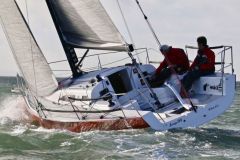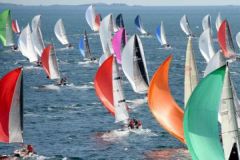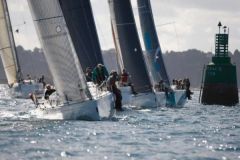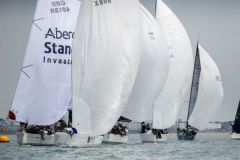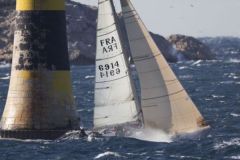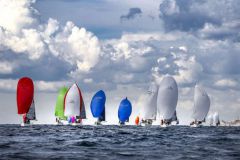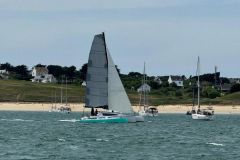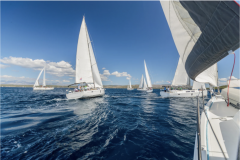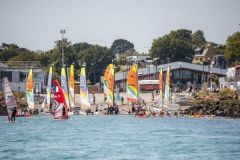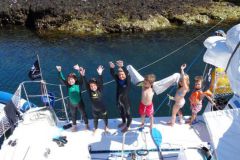At the service of integration
Jérôme Pruvot, federal technical advisor for the Ligue de voile AURA - Auvergne Rhône Alpes, shares the region's next challenges in the field of inclusive sailing: the year 2024 will bring a ?10,000 subsidy thanks to the Impact call for projects, opening up new perspectives. This funding will be used to support club activities for the individual public, as well as to train volunteers, particularly for handi-sailing support. Part of the budget will be allocated to the acquisition of a "SARA kit" to facilitate autonomous navigation despite visual impairment . This kit, available free of charge to clubs, broadens access to sailing to a more diverse public.
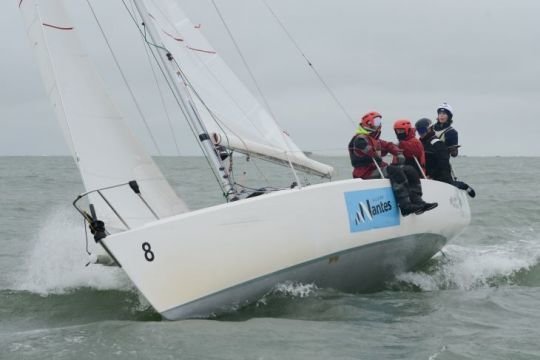
The League organizes two specific training courses in the region: a 4-5 day course to become a Handi-Sailing Educator (reserved for holders of a coaching diploma) and a 2-day course to become a Handi-Sailing Accompanist (designed for volunteer helpers). Training volunteers is particularly important, as setting up the activity can be complex, especially for a single instructor.
The French Sailing League regularly organizes inclusive courses, open to both able-bodied and disabled participants. If necessary, it guides participants towards adapted clubs. At the same time, the regional structure develops communication tools aimed at the general public, such as the series of three portraits, visible at the foot of this article and co-financed by the Agence Nationale du Sport.
The league is present at events, forums and major sailing events related to disability. Olivier Ducruix and Ange Margaron, members of Base Nautique de Sciez, won the 2023 Paravoile world championship in RS Venture double-handed.
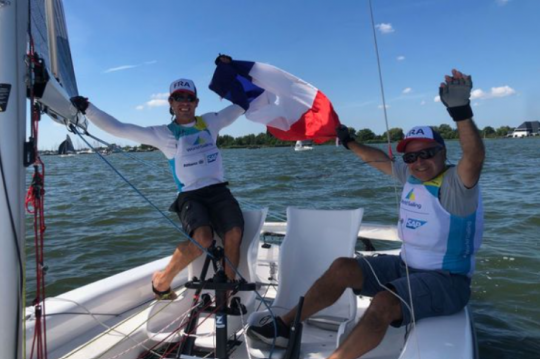
Target audience
As part of an inclusive approach, the Auvergne-Rhône-Alpes Sailing League has implemented measures that go beyond the boundaries of the physical and sensory capacities traditionally associated with this sport. These initiatives enthusiastically welcome participants with diverse profiles, such as paraplegics, tetraplegics, amputees and the like, as well as those facing orthopedic disabilities. Inclusion also extends to the visually impaired and blind, as well as the deaf and hard-of-hearing, who find a leisure space adapted to their specific needs within this nautical community. People with cerebral palsy (CP) and neurological disabilities also benefit from the League's efforts to ensure that sailing becomes a feasible and rewarding experience for all.
Autonomous sailing
The type and level of disability is not an obstacle to sailing. The AURA League's guiding principle is to encourage integrated practices among the able-bodied public, so as to share the pleasure of sailing together. Depending on the disability, the equipment used may be identical to that used by able-bodied people, with variable adaptations, or even be specifically designed. In this way, a wide range of equipment can be adapted for independent use.
-
MiniJi: single-handed keelboat suitable for recreational sailing and national competitions.
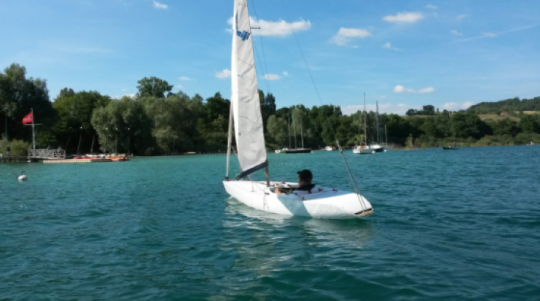
- Hansa: single or double version.
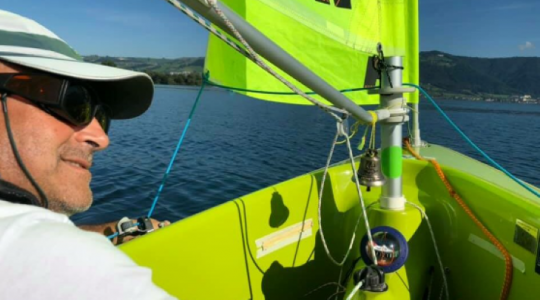
-
The Neo: enabling double practice.
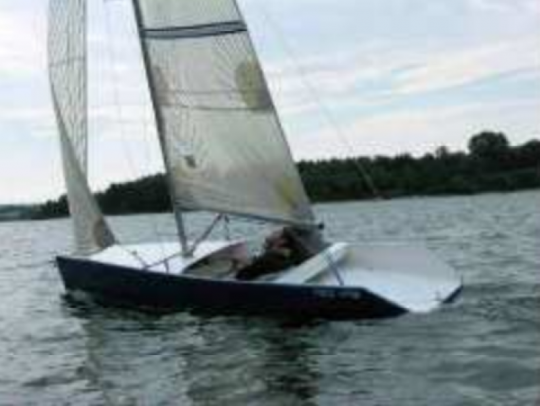
-
The Windrider17': for a safe introduction to speed on the water, or for coastal cruising.
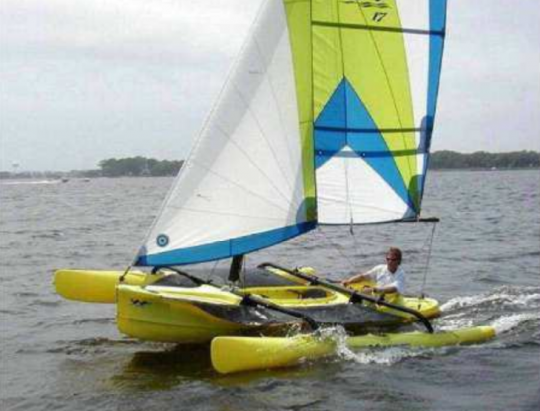
-
The Echo 90: collective or livable boat. Depending on the deck layout, it's not necessary to make any adjustments to give crew members an active role on board.
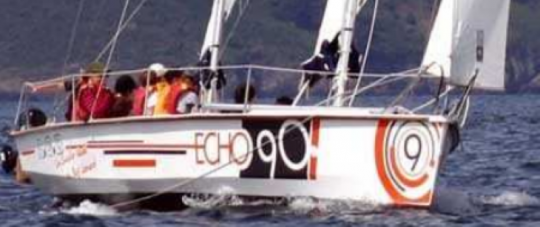
- The three Paralympic series: the 2.4 single-handed sports keelboat, the Sonar 24-foot sports keelboat with 3 crew and the Skud double-handed keelboat, which has the special feature of being mixed (men/women).
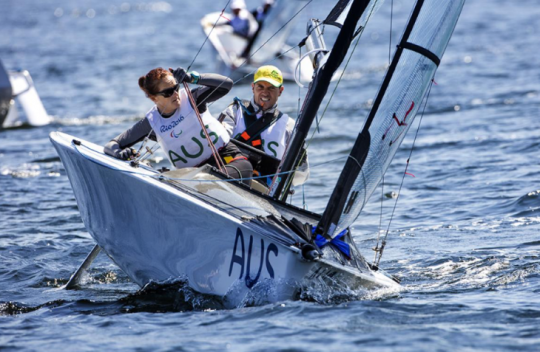
Taking on nautical challenges
For those aspiring to compete, the League offers a dynamic platform for disabled sailors. It actively encourages participation in local regattas and also facilitates travel to non-local events to diversify participants' experience. In this way, disabled sailors can gain access to able-bodied competition whenever the support allows.
Regional, national and international competitions, including world championships and the Paralympic Games, offer mixed handi-handicapped categories. In France, disabled sailors can take part in the National Access or MiniJi championships. Each year, this latter competition brings together the 80 best sailors in the sport, including both groups. To qualify for this championship, you need to take part in at least 2 selective league regattas or 1 inter-league regatta. The event offers a scratch ranking (handi-handicapped), a handisport ranking including an open title (men-women) and a women's title (if at least 5 participants). The competition takes place over one or more days, with 2 to 5 heats per day, each lasting 40 to 50 minutes.
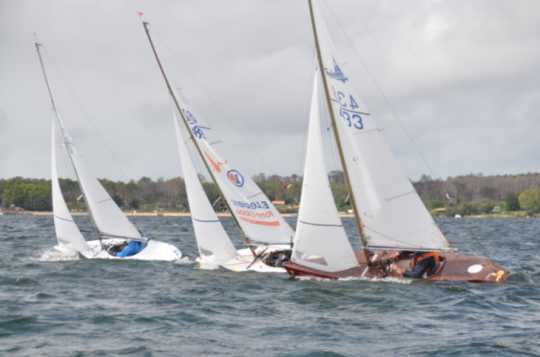
Practice on land
In some clubs, activities are organized directly from the pontoon of the nautical base, using radio-controlled sailboats (RCVs). Regattas last around 15 minutes. The practice is recognized by the ISAF (International Sailing Federation), and as a result, world, European and French championships have their place on the calendar.
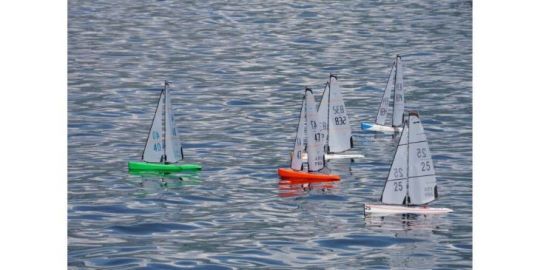
With accessible clubs, adapted equipment, dynamic competitions and trained volunteers, regional sailing becomes the reflection of a collective adventure where each participant finds his or her place in a community united by a passion for boating.

 /
/ 





